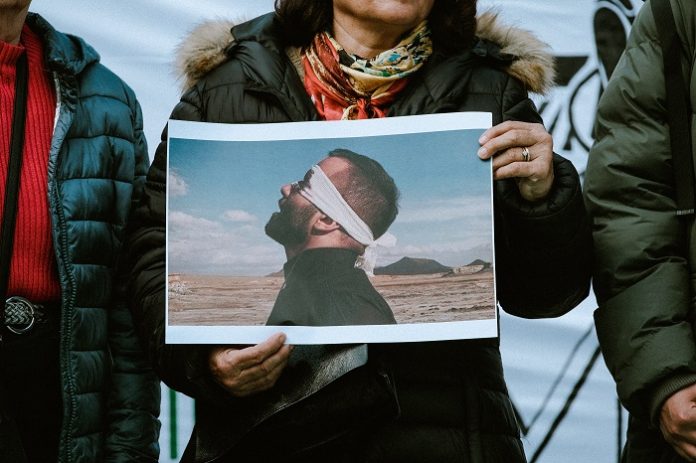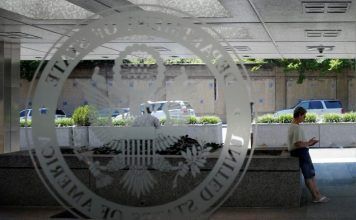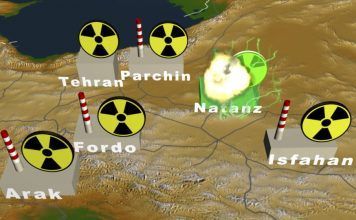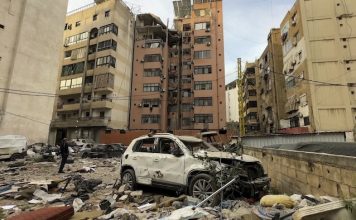
The arrest and charge of prominent Iranian rapper Toomaj Salehi by the Islamic Republic of Iran is the object of a complaint lodged on July 24 with the United Nations Working Group on Arbitrary Detention (UNWGAD) by the British law firm Doughty Street Chambers and by two human rights groups — the London-based Index on Censorship and the New York-based Human Rights Foundation.
The complaint was submitted on behalf of Salehi’s family. The document claims that his treatment by the Iranian government amounts to judicial harassment and that the government is failing to comply with its obligations under international law in its treatment of Salehi.
UN High Commissioner Calls for the Immediate and Unconditional Release of Rapper Toomaj Salehi
“The authorities are abusing judicial procedures to attempt to silence him and keep him locked away. Mr. Salehi’s continuing detention is arbitrary and unlawful. He should be immediately and unconditionally released,” said Caoilfhionn Gallagher, the international lawyer representing Mr. Salehi’s family, Index on Censorship, and the Human Rights Foundation. She made the remarks in a July 24 statement.
“Toomaj Salehi is a brave and brilliant artist, who uses his words and his music to stand up to the Iranian authorities’ abuses,” she said. “The years of torture, imprisonment, and judicial harassment that he has endured have been the result of peaceful actions that have brought hope and inspiration to people in Iran and around the world – and him exercising his right to freedom of expression,”
Salehi was detained in October 2022 for producing music and lyrics which were supportive of the ‘Woman, Life, Freedom’ movement in Iran. The movement, which ignited nationwide anti-government protests, calls for gender equality in Iran. It was trigged by the death of 22-year-old Mahsa Amini who died in September 2022 while in police custody after being detained for failing to wear her hijab according to the law in the country.
Salehi has endured physical maltreatment while in detention including a broken arm, a broken leg and a fractured rib. He has been denied access to legal representation and contact with family members for more than 300 days, and has been repeatedly arrested and released on bail.
Salehi was sentenced to death in April, for alleged offenses including “corruption on earth,” for supporting Iranian women demanding gender equality and for advocating for greater freedoms for people in Iran. His death sentence was overturned, but he remains in detention on what human rights groups have called “shifting” and “spurious” charges.
“The ongoing persecution of Toomaj Salehi is a stain on Iran,” Jemimah Steinfeld, the CEO of Index on Censorship, said in the statement. “Iran now has a new president, a man who has been positioned as a “moderate.” We implore him to free Toomaj Salehi and indeed all others wrongfully imprisoned for exercising their free speech rights.”
Salehi’s case is being heard in branch 5 of the Revolutionary Court in the central Iranian city of Isfahan, and the Criminal Court. He is being tried on charges which include “propaganda against the regime and incitement of the public to murder and violence” and “insulting sacred values and spreading falsehoods.”
“Despite the overturning of Toomaj’s death sentence, authorities aim to keep him imprisoned long-term. They often use cruel tactics, such as re-accusing prisoners of baseless charges to break them mentally and instill fear in others seeking freedom.,” Salehi’s cousin Arezou Eghbali Babadi said in the statement.
“Since the Islamic Republic was unable to execute him following global outrage, it is now attempting to keep him in prison or pressuring him into silence,” Negin Niknaam, Salehi’s friend and social media manager said in the statement. “This is not an individual act of suppression, but systematic suppression aimed at silencing and isolating dissidents.”
Salehi’s arrest, death sentence and ongoing detention caused an international outcry. More than 100 leading bands, artists and cultural figures from around the world such as Coldplay, Sting and the renowned Canadian author Margaret Atwood demanded Salehi’s release in a signed May statement produced by Index on Censorship.
On April 28, the Recording Academy, which issues the music industry’s Grammy Awards, said that it was “deeply troubled” by Salehi’s death sentence and that “no artist anywhere should have to fear for their life or livelihood when expressing themselves through their art.”
Iranian activist Elica Le Bon told Rolling Stone Magazine in a 26 April interview that Salehi was known in the music community as “the Tupac of Iran,” and that he had “become a beloved icon for the Iranian people with his unrivaled courage to express life under the brutal regime through hip hop music, an artistic expression that — like most forms of art — is illegal in Iran.”













